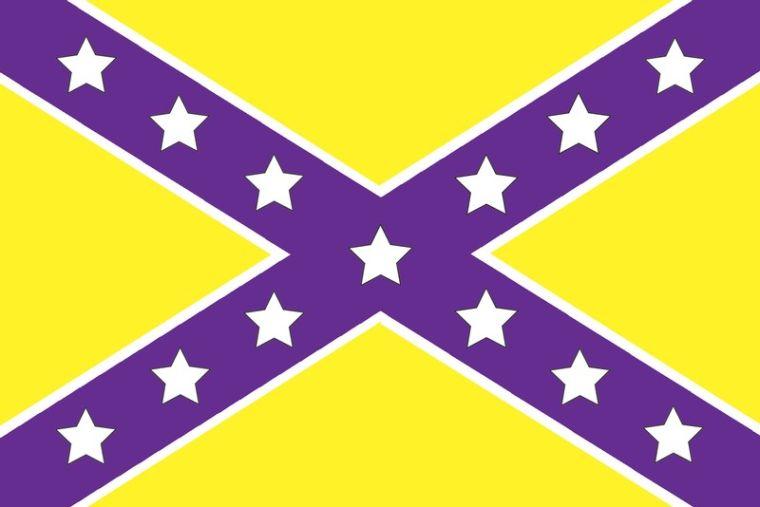One University student has decided to take what he calls the controversy over purple and gold-colored Confederate battle flags into his own hands.
Brandon Smith, speaker of the Student Senate and former Black Student Union president, said he has struggled for three years with the issue. And though he knows the flag cannot be outlawed because it is protected by the First Amendment, Smith is considering proposing legislation in the Student Senate or forming a campus coalition to oppose it.
Smith said the Confederate battle flag — a symbol of battle Confederate troops used more than 100 years ago during the Civil War — symbolizes racism for many black students.
Smith said it is “very conflicting” for black students to see their school colors on such a controversial symbol.
“It’s a pseudo-endorsement of [the flag],” Smith said.
The Confederate battle flag is a problem all year, Smith said, but tensions are heightened more during football season when flags are abundant at tailgating festivities.
“[Football season] conjures up the most emotion,” Smith said.
Smith said he wants to begin a dialogue on campus between students who have opposing views of the flag to help them better understand each other. He said he recognizes that many students are divided over possible solutions.
“I am sure there are different opinions about how to address [the issue],” Smith said. But he also said the flag is a problem that cannot be “pushed under the rug” anymore.
Lineisha Williams, a black mass communication sophomore, said she does not like to see the Confederate flag, especially in purple and gold.
“I personally get very offended,” Williams said. “I automatically think racism.”
Williams also said it is ironic that many of the flags are waved at football games, when most of the players are black and probably are offended.
Assistant Vice Chancellor and Dean of Students Kevin Price said he understands why some students are offended by the purple- and gold-colored Confederate battle flags.
“LSU does not license such flags and has informed area businesses that might produce such flags that the University will not condone the use of our colors in that way,” Price said.
Black Student Union leaders, including Smith and Jennifer Grace, say they have spoken to administrators about the purple and gold-colored Confederate battle flag issue.
Current BSU President Grace has inherited the battle with Smith.
“I would like [the flag] to be outlawed all the time,” Grace said. “It outrages me to see it. I am sure many other students feel that way.”
Grace said the problem is “insensitivity,” which she said stems from ignorance.
Grace said that is why the University and BSU must begin an education and awareness campaign.
Chris Daunis, a white psychology sophomore, and Alex McGann, a white undecided sophomore, said they have never noticed purple and gold-colored Confederate flags on campus and did not know the flag is an issue.
But Daunis said the flags are an inappropriate representation of school pride.
“I could have thought of a much better idea for a flag with LSU pride.”
Smith said it is important for University community members — for and against the flag — to speak with each other about their views about flag.
Student Government President Brad Golson said he hopes to work with Smith.
Golson said it is a problem when the University community are offended by the flags. He said those who display the flags at games are “not truly celebrating LSU” if the flags offend people who make up the University community.
Controversial Colors
March 7, 2005
Controversial Colors




